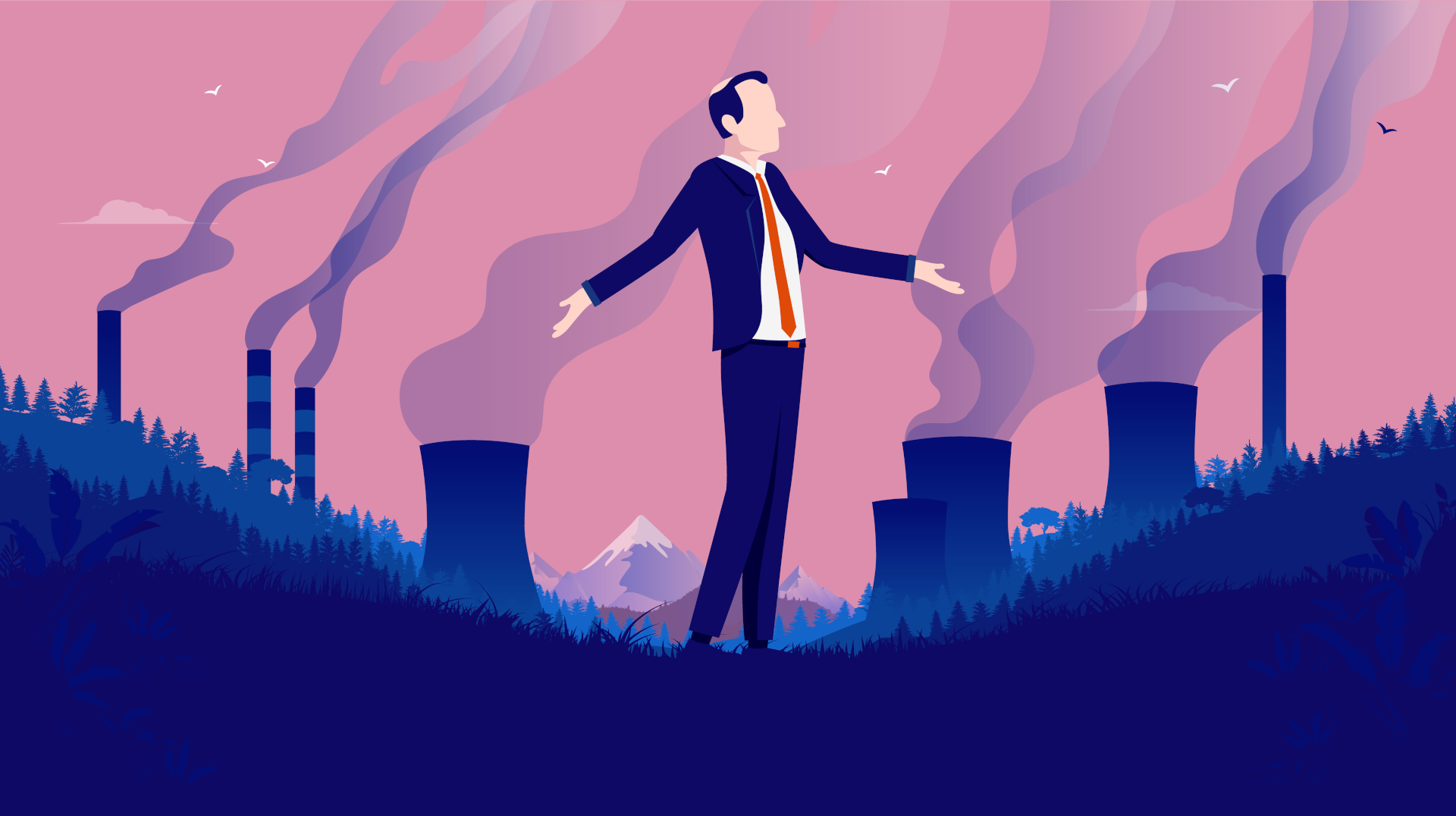Nachhaltige Entwicklung
Art der Wirtschaftsentwicklung, die konservierend und verantwortungsvoll mit Ressourcen und der Umwelt umgeht, sowie soziale Anforderungen berücksichtigt, beispielsweise hinsichtlich qualitativ hochwertiger Arbeitsbedingungen oder einer würdigen und angemessenen Entlohnung.

Author: | April 11, 2025
Quelles sont les raisons de notre réticence pour préserver notre planète ?
La réticence à préserver notre planète demeure une réalité difficile à surmonter, malgré le nombre important d’experts alertant sur le changement climatique, les nombreux citoyens engagés pour la cause environnementale, et la multiplication des catastrophes naturelles et humaines résultant de la crise climatique. Mais quelles sont les raisons de cette réticence ?

Author: | March 5, 2025
Adapter les lieux de travail au changement climatique
Le rapport récemment publié par le Lancet Countdown pour l’Europe démontre que le changement climatique affecte déjà les êtres humains et les sociétés dans leur ensemble. Il se concentre sur les effets néfastes sur la santé, soulignant la nécessité « d’actions rapides de mitigation et d’adaptation climatique réactives pour la santé ». Le lieu de travail est un domaine clé pour ces actions.

Author: | January 14, 2025
Neo-humanism for a Sustainable Urban Future
Neo-humanism presents a comprehensive framework for urban planning and policy that aims to create resilient, sustainable, and thriving cities, rooted in equity and collective responsibility. In practice, this approach advocates for people-centered urban design that prioritizes inclusivity, social justice, and ecological balance over economic needs. Cities should be organized in ways that reduce inequality by providing affordable housing, quality healthcare, and accessible public transportation. At the same time, promoting green infrastructure and strengthening community bonds are key to fostering healthier, more integrated and socially cohesive urban environments.

Author: | November 28, 2024
Towards socially inclusive carbon policy in Luxembourg
What is the carbon inequality in Luxembourg? How do consumption emissions compare with the climate targets? Who are the highest and lowest emitters, and what do they consume? The answers to these questions will be key in the design of socially inclusive carbon policies in Luxembourg.

Author: | March 20, 2024
Arbeitszeitverkürzung – gut für Beschäftigte, gut fürs Klima
Was wir einkaufen, wie wir uns fortbewegen und wohin wir auf Urlaub fahren – damit beschäftigen wir uns in der Klimadebatte schon lange. Doch um Emissionen zu senken, müssen wir nicht nur unseren Konsum neu denken, sondern auch die Tätigkeit, mit der wir am meisten Zeit verbringen: unsere Erwerbsarbeit.

Author: | November 23, 2023
Worauf es in der Klimakrise ankommt: Demokratie, Freiheit und Soziales im heißen Zeitalter
Luxemburg hat gewählt. Erneut! Es ist noch nicht lange her, da buhlten Altparteien und ebenso neue Gruppierungen um die größten Stimmenanteile der wahlberechtigten Luxemburger. Dabei sind diese nach Corona, Energiekrise und Inflation müde und leidgeplagt. Wer hat noch Lust auf Krisenmodus im Jahr 2023? Dabei sind jetzt gerade die entscheidenden Jahre, um noch etwas gegen die vermeintlich größte aller Aufgaben zu tun. Die Klimakrise! Jedoch spielte das Klima bei vielen Parteien und Wählern lediglich eine untergeordnete Rolle im Wahlkampf.

Author: | November 2, 2023
Methods to measure and (not) achieve societal progress
How can we increase happiness, that is, how can societies progress? The answer is not national income (GDP) growth alone. In 1974, Richard Easterlin first documented how happiness did not increase in correspondence with GDP growth. This still holds today. For example, while GDP per capita (adjusted for inflation) has more than doubled in the United States since the early 1970s, happiness has declined. China serves as another example. From 1990 to 2015, GDP per capita increased by a factor of five, yet again, happiness, if anything, declined.

Author: | June 5, 2023
How to lead happy lives in post-growth societies
The overemphasis on GDP as a measure of success has diverted attention from crucial aspects of people’s lives, such as their relationships with others and the environment. The erosion of the social and natural environments results from such myopic thinking, and highlights the need for a paradigm shift. Prioritizing well-being through the promotion of social relations and cooperation can bring far-reaching social and environmental benefits without economic sacrifices.

Author: | January 11, 2023
Di ekologesch an di sozial Froen sinn 2 Säiten vun enger Medaile – en Appell fir se och gemeinsam unzegoen!
Die Einführung von Ökosteuern als Umweltinstrument wurde bereits in den Wahlversprechen der Parteien Luxemburgs und formal in der Regierungserklärung vom 22. Juli 1994 festgehalten.

